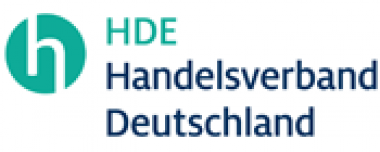Wirtschaftsgipfel: HDE fordert Taten und Reformen
Mit Blick auf die beiden am 29. Oktober in Berlin stattgefundenen Wirtschaftsgipfel fordert der Handelsverband Deutschland (HDE) konkrete, strukturelle Reformen für den Standort Deutschland. Verbandspräsident Alexander von Preen betont, dass längst alle Herausforderungen und Lösungswege benannt seien und auf dem Tisch lägen.
„Reden ist Silber, Handeln ist Gold. Das muss das Motto der Wirtschaftspolitik für die kommenden Monate sein. Der Einzelhandel als drittgrößter Arbeitgeber und bedeutendste Kraft der Binnenwirtschaft kann nicht auf die Bundestagswahlen warten. Die Bundesregierung ist noch für ein Jahr gewählt, diese Zeit muss in der aktuell wirtschaftlich schwierigen Lage dringend für wachstumsfreundliche Politik genutzt werden“, so HDE-Präsident Alexander von Preen.
Aus Sicht des HDE geht es dabei vor allem um gesicherte Standortbedingungen, ein weiteres Bürokratieentlastungsgesetz, ein Moratorium für neue Bürokratie, die Abschaffung der Stromsteuer für alle und die konsequentere Durchsetzung des deutschen und des EU-Rechts gegenüber Händlern aus Drittstaaten. „Beim Entflechten des Bürokratiedschungels darf man sich nicht auf dem Erreichten ausruhen, da muss noch mehr kommen. Insbesondere aber darf nicht zeitgleich immer mehr neue Bürokratie obendrauf gesattelt werden. Wir haben ein echtes Strukturproblem und brauchen jetzt ein Moratorium“, so der HDE-Präsident. Auch für den Einzelhandel sei die Energie zu teuer. Wer die Streichung der Stromsteuer nur auf bestimmte Industriezweige beschränke, springe deshalb zu kurz. Als entscheidend sieht von Preen auch die Deregulierung der Geschäftsbeziehungen an. „Viele Gesetze der letzten Jahre sind von einem grundsätzlichen Misstrauen gegenüber dem Markt und seinen Kräften geprägt. Da braucht es wieder mehr Raum für Unternehmertum, für kreative und wachstumsfördernde Ideen. Wenn der Staat mit immer neuen Melde- und Berichtspflichten den Alltag der Unternehmer flutet, dann leidet das Kerngeschäft.“ Das Versprechen des Bundeskanzlers, das Lieferkettengesetz abzuschaffen, sei ein richtiger Ansatz, der nun aber auch rasch umgesetzt werden müsse.
Von Preen: „Der Handel erwartet strukturelle Reformen der Bundesregierung. Es geht nicht um zahlreiche Gipfel, sondern um eine verantwortliche und zielgerichtete Umsetzung der strukturellen Maßnahmen. Flickschusterei und immer neue Gesprächsrunden bringen uns nicht weiter. Jetzt heißt es handeln.“
Handelsverband Deutschland HDE






